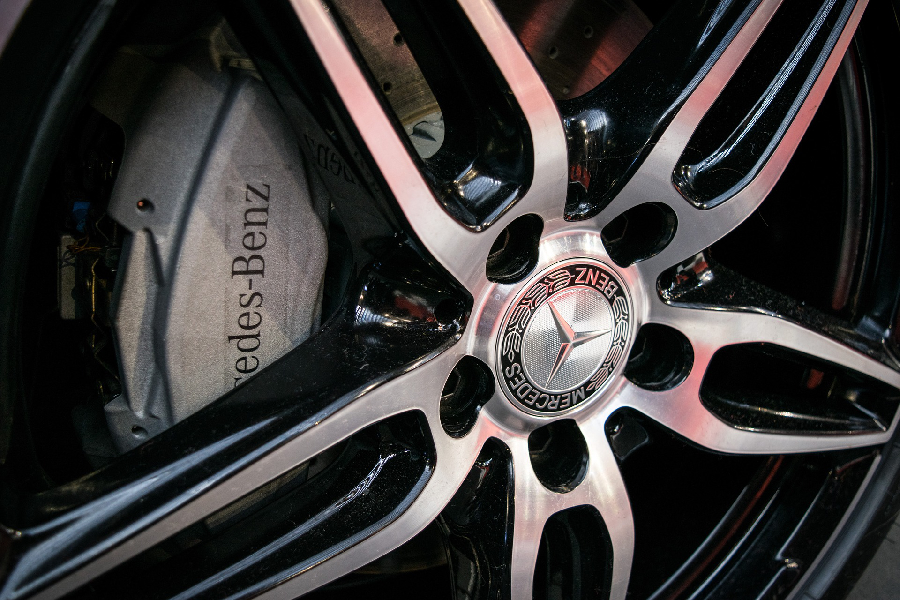
Robohub.org
The coming nightmare for the car industry

Source: CC0
I have often written on the challenge facing existing automakers in the world of robocars. They need to learn to completely switch their way of thinking in a world of mobility on demand, and not all of them will do so. But they face serious challenges even if they are among the lucky ones who fully “get” the robocar revolution, change their DNA, and make products to compete with Google and the rest of the non-car companies.
Their brands are not valuable
Today if you summon a car with a company like Uber, you don’t care what brand of car it is as long as it’s decent. Even with the luxury variants of Uber, you don’t care which type of luxury car shows up, as long as it meets certain standards. For companies who have most of their value in their nameplate, this is nightmare #1. The taxi service (Uber or otherwise) becomes the brand that is seen and valued by the customer.
When you are buying a car for five years at the dealership, you care a lot about the brand. Both for what it means, and what it says about you when driving it. When you buy a car by the ride you don’t care about brand, because you are only using it for a short time.
Their brands might be tarnished
There will be accidents in robocars, unfortunately. Those accidents will cost money, but they will also cause problems in public image. The problem is: “Mercedes runs over grandmother” is a headline, that will make people less likely to buy any type of Mercedes. As such, Mercedes has plans to market self-driving car service under their Car2Go brand. You may not even know that Car2Go is Daimler, and they might like it that way. “Google car runs over grandmother” is bad news for the Google car project, but is not going to make anybody stop doing web searches with Google.
The non-car companies don’t have a car brand to tarnish, but they do have famous brands. They can use those brands to attract customers without the same risk. Big car companies have famous brands, but may be afraid to use them.
They might just be the contract manufacturer
Companies like Uber, Google, Apple and others don’t plan to manufacture cars. Why would they? There are tons of car manufacturing capacity out there. They can approach carmakers and say, “here’s a purchase order for 100,000 cars — built to our spec with our logo on them.” It will be very hard to turn down such an order. Still, some companies will be too proud to do this, or unwilling to sign their own suicide note.
If they don’t accept the order, somebody else will. If nobody in the west does, somebody in China will. China is the world’s #1 car manufacturing country, but the cars are rarely exported to the west. They would love to change that.
A likely model for this is the relationship of Apple and Foxconn. Foxconn makes your iPhone, but many don’t know that. Foxconn makes good money, but Apple makes much more by designing the product and owning the customer. The car companies don’t want to be Foxconn in the world of the future, but the alternative may be to be much smaller (BTW, Foxconn has said it is interested in making cars.)
First-rate quality might not be that important
Chinese manufacturers don’t have the quality of the current leaders. But they may not need to. Just as Apple taught Foxconn how to make good iPhones, they might follow the same pattern here. But they don’t need to. That’s because a less reliable robocar is not the same sort of problem an unreliable personal car is. Sure, it should not break down while you are riding in it — but even then the company can quickly send you a replacement to pick you up in just a few minutes. If it breaks down otherwise, it just goes out of service. This costs the fleet manager money, but they saved a lot of money with the lower quality manufacturer. When cars can move on demand to service customers, breakdowns are not the same sort of problem. When your own car breaks down it’s a nightmare, and you will pay a lot to avoid it. For a fleet, it’s just a cost. All cars are down for maintenance some of the time. Cheaper cars will be down more, but if they are cheap enough, it still saves money.
Customer perception of quality is still important. The vehicle must maintain the level of comfort and interior quality the customer has paid for. Safety related failures are of course much less tolerable.
New car designs will be radically different
The robocar of the future will look quite different from the cars of the past. Existing car companies can handle this, but they lose some of the advantage that comes from decades of experience. The future robocars are probably electric and much simpler, with hundreds of parts rather than tens of thousands. It’s a new world and experience with the old may actually be a disadvantage. Only Nissan and Tesla have lots of electric car experience today, although GM is building it. Electric platforms are much simpler and ripe for creativity from new players.
tags: Automotive, cx-Politics-Law-Society, robocars





